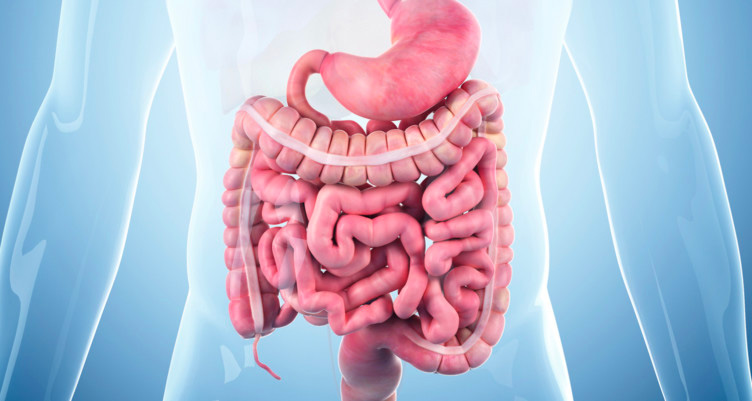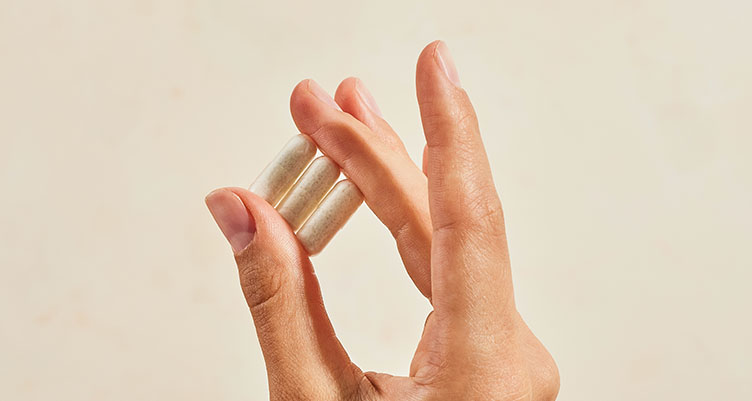Probiotics for Women

- Probiotics are live bacteria and yeasts that live in your body and support the body.
- Probiotics for women provide many health benefits. They can support digestive issues, vaginal health and weight management.
- The Bulletproof Express 3-in-1 Probiotic contains probiotics, prebiotics and postbiotics to deliver holistic gut support.
Call it a “gut feeling” if you will, but the body craves probiotics. Probiotic supplements are live microorganisms that deliver “good bacteria” to the gut[1]. This help with discomfort and support a well-balanced digestive system.
Probiotics are naturally found in certain foods, such as yogurt, kombucha, and sauerkraut. But if you’re struggling to fit it into your diet, probiotic supplements—in the form of capsules, powders and liquid—also deliver this goodness. The most common strains found in probiotic products are Lactobacillus, Bifidobacterium and Saccharomyces.
While everyone can benefit from a better balance of healthy gut bacteria, certain strains of probiotics are particularly helpful to women. These strains can help manage digestive conditions, hormone support and vaginal discomfort.
Read on to learn more about the importance of probiotics for women.

Gut Health
Did you know that women suffer from more digestive issues than men? It’s sad but true. But the good news is that women are more likely to use a probiotic supplement than men. This small step goes a long way in supporting gut health.
Your gut contains some bad apples—aka bad bacteria. Probiotics help keep a healthy balance of bacteria in your gut. They support the breaking down of fiber to aid in digestion, creating short-chain fatty acids (also called postbiotics; more on that later) and supporting your immune system.[2]
Research has found evidence that probiotics help with digestive complaints[3] and occasional constipation[4].
One study had patients with gut concerns eat yogurt—one of the best foods for gut health that’s primarily made up of Bifidobacterium and Lactobacillus. At the end of the study, they found that probiotics helped with the severity of digestive discomfort symptoms by supporting intestinal function.[5]

Bloating
According to a study published in Clinical Gastroenterology and Hepatology, nearly one in seven Americans experience bloating every week.[6] But it’s women who are twice as likely to deal with bloating.
The common cause of bloating for women is hormones. They fluctuate due to the menstrual cycle and perimenopause.
Since the gut microbiome influences the reproductive system, interruptions to the gut microbiome (an overflow of bad bacteria) can cause hormones to not metabolize properly and return to the bloodstream.[7] This results in the telltale signs of bloating, such as a puffy face and a swollen stomach.
Probiotic supplements can help your body shed excess water by restoring balance to the gut’s bacteria and reducing excess gas that gets trapped in the gastrointestinal tract.

Constipation
Women are more likely to suffer from occasional constipation than men. These unsatisfying trips to the bathroom boil down to a woman’s anatomy and hormones.[8] Starting with anatomy, a man’s colon is eight centimeters shorter than a woman’s, which means that men have a faster time emptying it out.
Additionally, studies have found that hormone imbalances, particularly estrogen and progesterone, slow down gut movement.[9] Clinical studies have promising evidence that probiotics can help with symptoms of occasional constipation by supporting gut microbiome and immune function.
Digestive Discomfort
On any given day, the symptoms of digestive discomfort are unpleasant. This discomfort can include abdominal pain, bloating, diarrhea or constipation. But research has found that a woman’s digestive discomfort symptoms can actually get worse during her period.[10]
Hormones are once again at play here.[11] You can breathe out a sigh of relief in knowing that probiotics are teeming with benefits for gut health.
Several studies have found that probiotics may help with symptoms of digestive discomfort by slowing down bowel movements and promoting comfort.[12]
Certain probiotic strains are better than others. You want to choose probiotics that contain Bifidobacterium longum, Lactobacillus or Saccharomyces. These strains have all been studied for their positive impact on digestive discomfort.
Reproductive Health
When you think of probiotics, it’s easy to think about the benefits to the digestive system. But these microorganisms benefit a woman’s body in other areas, such as the vagina’s microbiome. When this bacterium gets out of balance, vaginal imbalances such as bacterial yeast infection and bacterial vaginosis (BV) can occur.[13]
When choosing a probiotic for vaginal health, opt for one from the Lactobacillus family. As the most abundant bacteria in the vagina, studies have found that various strains of Lactobacillus are particularly beneficial supporting vaginal health. Additionally, it’s been found to prevent unbalance and maintain the low pH level that’s required for optimum vaginal health.

Pregnancy
If you’re craving pickles while pregnant, consider yourself lucky. It’s one of the many probiotic-rich foods that benefit the digestive system! Probiotics may help with morning sickness, which is a condition that affects about 85 percent of women.[14].
Researchers from the UC Davis School of Medicine set out to find if probiotics could help with these symptoms and the quality of life of pregnant women. At the end of their 16-day study, which consisted of 32 participants, they found that two cycles of daily probiotics followed by two days without probiotics significantly helped with the symptoms of pregnancy-related nausea and vomiting.
Maintaining Healthy Weight
Gut bacteria and weight management go hand in hand. A diet rich in probiotics has been found to support metabolism and may help with appetite.
As with any weight loss strategy, it’s important to focus on the foods you’re eating. For a happy and healthy gut, choose probiotic-rich foods, such as:
- Yogurt
- Sauerkraut
- Kefir
- Kombucha
- Kimchi
- Miso
- Pickles

Probiotic Supplements
The particular strain we use in the Bulletpoof probiotic supplement is Bifidobacterium lactis. Bifidobacterium lactis is a shelf-stable probiotic strain that supports a healthy gut microbiome and GI tract. We use Bifidobacterium because it is one of the most clinically researched probiotic strains available. We also include postbiotics and prebiotics in this supplement so you can experience the benefits of gut health faster.
Prebiotics
Prebiotics help feed good bacteria. These are foods that feed probiotics. Since the human body can’t digest these types of fiber, probiotics do the job for you. Some examples of these high-fiber foods include:
- Oats
- Legumes
- Bananas
- Berries
- Garlic
Postbiotics
We add tributyrin, a postbiotic, to our probiotic supplement formular. Postbiotics protect your gut lining, helping you feel relief from occasional GI discomfort. These bioactive compounds are the byproducts of probiotic breaking down foods, such as fibers (think whole grains and fruits and vegetables).
A few examples of postbiotics include short-chain fatty acids and enzymes. The health benefits of postbiotics are like probiotics as they both support the immune system, aid the digestive system and help with digestive discomfort.
Sign up for early access to sales, product launches, the latest Bulletproof news and more!



